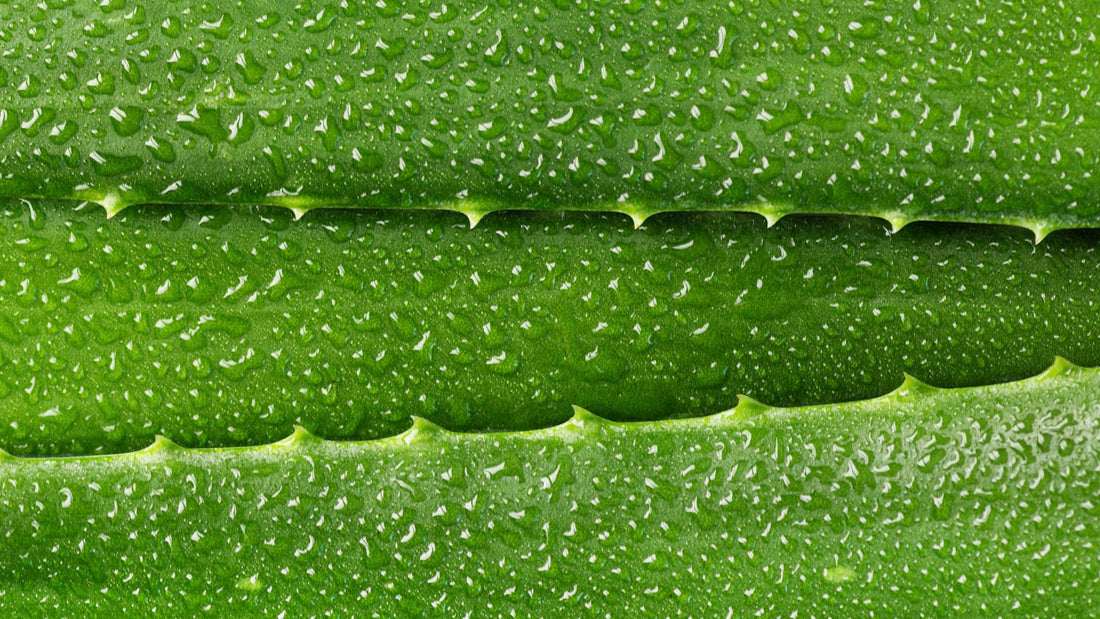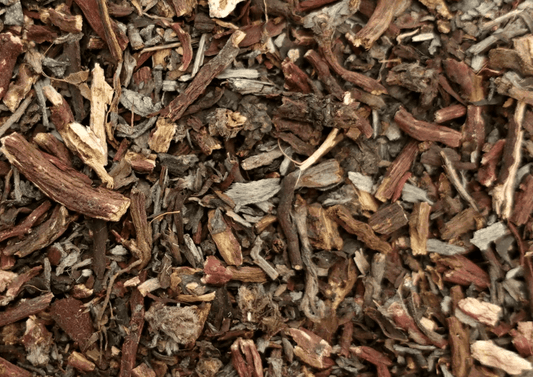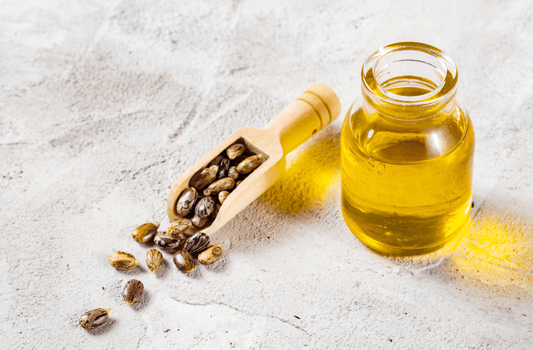Aloe Vera is a fleshy plant which is a member of the cactus family but most of us know it best for its ability to soothe all kinds of skin complaints.
Did you know that you can use aloe vera juice in cold process soap for a wonderfully gentle bar of soap with the added bonus of a lather boost from the sugars in the sap?
To create the perfect shaped soap bar, you can use our silicone soap moulds!
How to Use Aloe Vera Juice in Soap Making.
In cold process soap recipes you'd usually find water, sodium hydroxide and oils. However, when it comes to making aloe vera juice soap, you swap the water for aloe vera juice.
Aloe vera juice contains natural sugars, so if you don't keep it very cool then it will scorch. This can cause off smells and colours in the finished bar.
We freeze our aloe vera juice into ice cube trays, and add the sodium hydroxide slowly over the course of 15 minutes. We put the mixing jug in a bowl of cold water to help keep the temperature low, and we kept the temperature below 30C throughout. Don't be tempted to rush this part of the process!
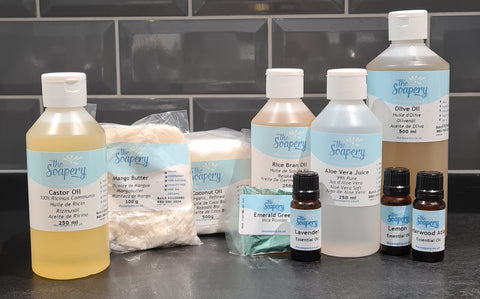
Ingredients:
Makes 6 bars of soap
Time: 1 hour hands on, 2-3 hours freezing time and 4-6 weeks curing time.
- Olive oil 180g | 197ml
- Coconut oil 144g
- Mango butter 95g
- Castor oil 45g | 47ml
- Rice bran oil 36g | 39ml
- Aloe vera juice 140g | 140ml
- Sodium hydroxide 70g
- Emerald green mica powder 3g
- Lemon essential oil 6g | 7ml
- Lavender essential oil 4g | 5ml
- Cedarwood essential oil 5g | 5ml
Equipment:
- Gloves
- Goggles
- Weighing scales
- Hand blender
- Soap mould - 6 cell silicone or a DIY alternative
- Ice cube tray
- 3x 1L plastic jugs
- Silicone spatula
- Digital or jam thermometer
Method:
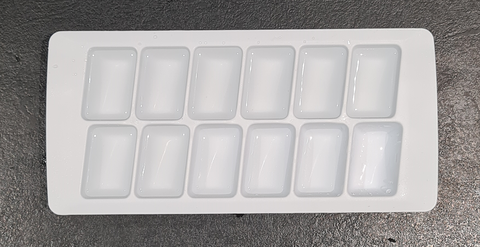
1. Freeze your aloe vera juice
- Weigh your aloe vera juice
- Pour into ice cube trays and place in the freezer
- After 2-3 hours it should be frozen and ready for the next step
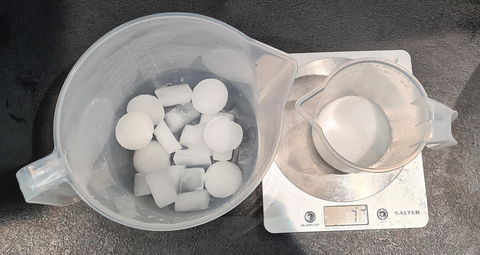
2. Mix the aloe vera and sodium hydroxide
- Put your gloves and goggles on. Sodium hydroxide is dangerous and will burn your skin if it touches you.
- Add a quarter of your sodium hydroxide to your aloe vera juice cubes and mix.
- Test the temperature and leave it to cool down for 5 minutes
- If it is below 20C, add another quarter of your sodium hydroxide. If not, let it cool down further.
- Repeat until all your sodium hydroxide is dissolved in your aloe vera juice.
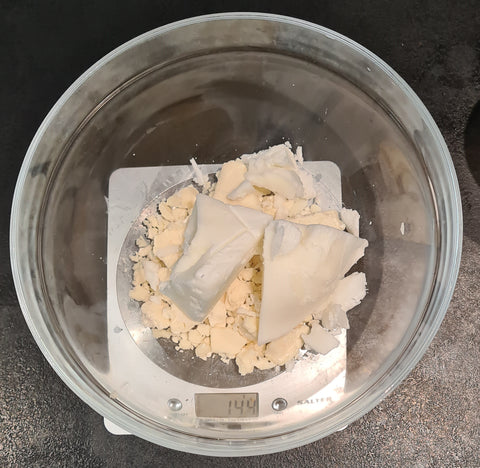
3. Measure your oils
- Weigh your olive oil, coconut oil, mango butter, castor oil and rice bran oil.
- Combine in a heatproof bowl or jug.
- Heat gently over boiling water or in a microwave until they are melted and combined.
- Leave to cool down, you need them around 40C
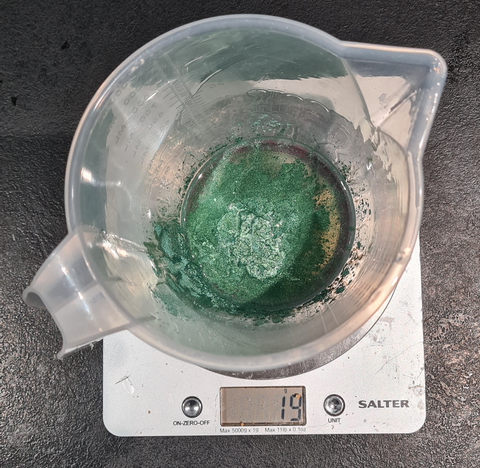
4. Mix essential oils and mica powder
- Weigh your essential oils and blend them together.
- Weigh the mica powder, then mix into your essential oils until smooth.
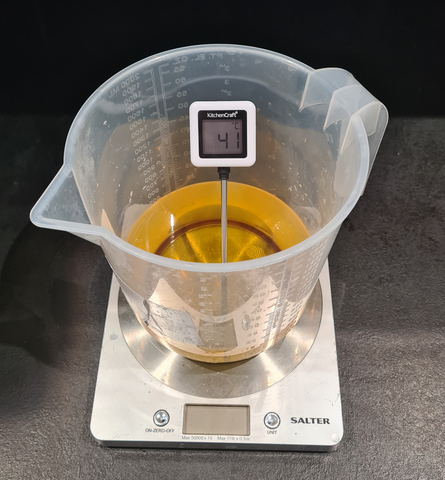
5. Check the temperatures
- Test the temperature of your oils, they should be between 35C and 40C
- Check the temperature of your aloe vera solution, it should also be below 40C
- If you need to, heat the oils a little or let them cool down more. Just don't reheat your aloe vera solution.
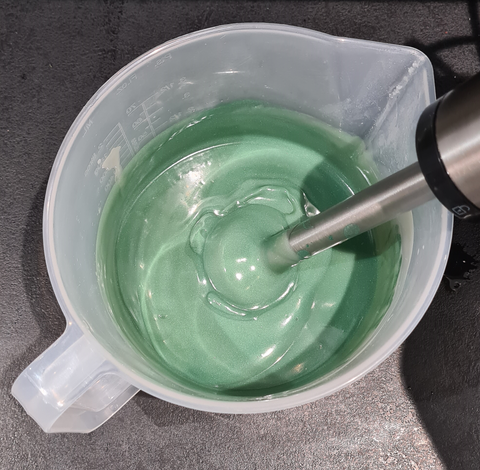
6. Blend until trace
- Combine your oils and aloe vera juice mixtures.
- Stir gently with your stick blender and then blend it until it starts to thicken.
- Add your essential oil mixture and stir.
- Your mixture should be a pourable batter, this is light trace (see the photo above for a medium trace).
- If it is a thick blancmange texture you've blended it too much, if you work quickly you can spoon it into your moulds.
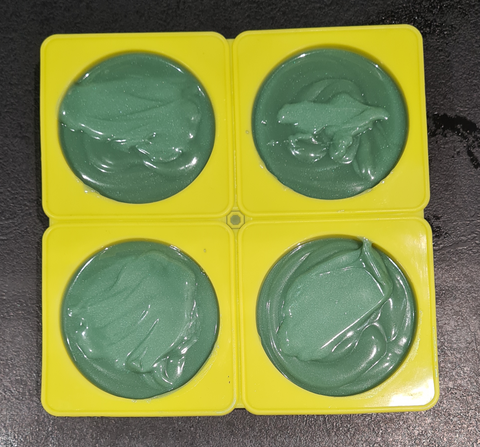
7. Pour into moulds
- Pour your soap mixture into moulds, or a DIY alternative.
- Leave the soap somewhere cool, it can overheat and scorch at this stage. Note from Andy: I left it in my garage overnight, that saved it from overheating.
- Leave for 2 days before unmoulding.
- Place somewhere with a good airflow between bars, and leave to cure for 4-6 weeks.
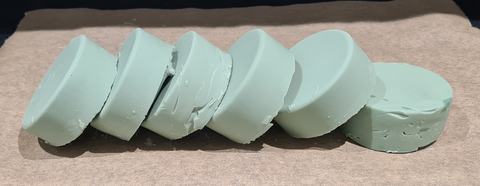
Did you enjoy making this one? Try more of our cold process soap recipes today!
